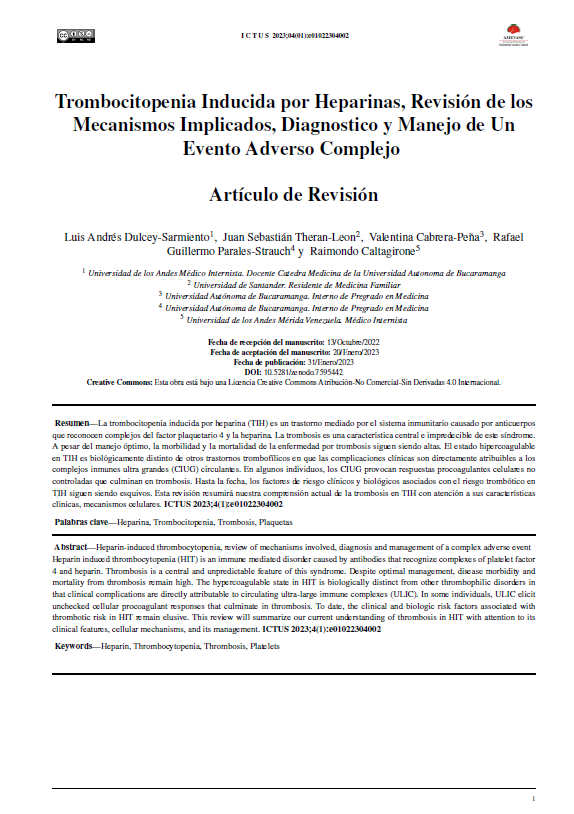Abstract
Heparin induced thrombocytopenia (HIT) is an immune mediated disorder caused by antibodies that recognize complexes of platelet factor 4 and heparin. Thrombosis is a central and unpredictable feature of this syndrome. Despite optimal management, disease morbidity and mortality from thrombosis remain high. The hypercoagulable state in HIT is biologically distinct from other thrombophilic disorders in that clinical complications are directly attributable to circulating ultra-large immune complexes (ULIC). In some individuals, ULIC elicit unchecked cellular procoagulant responses that culminate in thrombosis. To date, the clinical and biologic risk factors associated with thrombotic risk in HIT remain elusive. This review will summarize our current understanding of thrombosis in HIT with attention to its clinical features, cellular mechanisms, and its management.

This work is licensed under a Creative Commons Attribution 4.0 International License.
Copyright (c) 2023 Ictus

